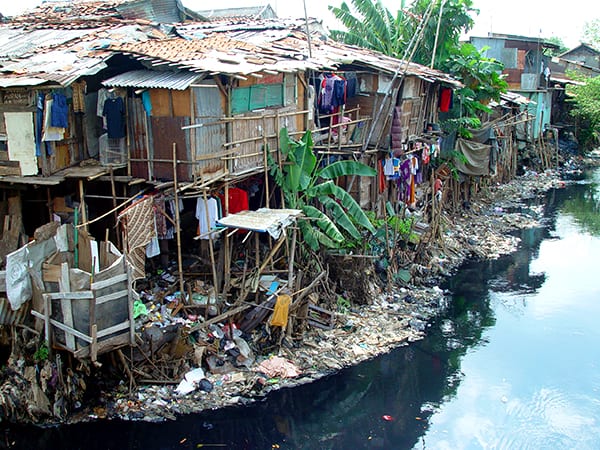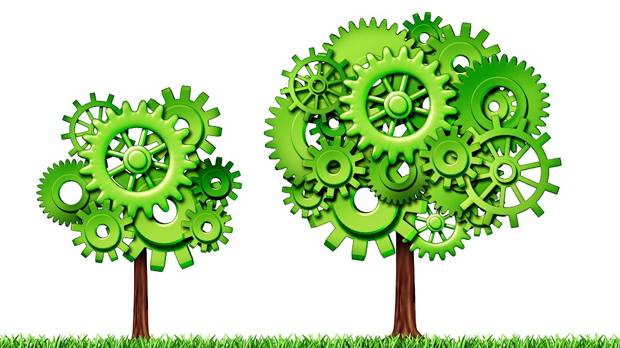When talking about issues of sustainability it seems it is impossible to avoid initial confusion, given how much of a buzzword it has become. Everyone seems to have something to say about it, but looking at the meanings attributed to sustainability it is hard not to conclude that different people from different fields mean very different things by it.
With some knowledge of the relevant fields it is quite obvious, for example, to notice that business people talking about ‘sustainable growth’ and environmentalists speaking about ‘sustainable economies’ attribute not just opposing, but downright opposite/contradictory meanings to the word. Indeed for a radical environmentalist, the mere idea of ‘sustainable growth’ is nothing but an oxymoron, as for them it is impossible to indefinitely sustain growth, the reason for this being easy to illustrate with the idea of the impossible hamster.
Because of those issues over the very meaning of the word in everyday use some environmentalists, such as Dr. John Barry of QUB, have decided to altogether abandon the term and instead have started talking about the reality of ‘Actually Existing Unsustainability’ and about the need to reduce unsustainability in our socio-economic system. They think that any talk of achieving sustainability is nothing but a mirage that perpetuates a system the very foundations of which (the economic model) are not sustainable. In the words of Bluhdorn and Welsh, much of political and economic talk of sustainability today is primarily concerned with the ‘paradox of sustaining the unsustainable’. Bluhdorn coined for this phenomenon the phrase of ‘simulative politics’, where the public speeches and documents that politicians and business leaders produce on a regular basis are meant to project awareness of and action with regards to sustainability, while at best taking marginal steps to get away from fundamentally unsustainable behaviour.
Being somewhat wary of giant hamsters devouring the globe I cannot help but agree with Bluhdorn and Welsh’s analysis when it comes to the common use of the word ‘sustainability’ in the media as presented by politicians and economists. In a sense their behaviour is nothing but a logical consequence of the socio-economic inertia of globalised capitalism. It cannot accept the conclusion -that current economic systems are largely incompatible with sustainability- that is both implicit and explicit to the -with regards to sustainability- commonly referenced Bruntland report (1987), which states that
“[…] the “environment” is where we all live; and “development” is what we all do in attempting to improve our lot within that abode. The two are inseparable. Further, development issues must be seen as crucial by the political leaders who feel that their countries have reached a plateau towards which other nations must strive. Many of the development paths of the industrialized nations are clearly unsustainable. And the development decisions of these countries, because of their great economic and political power, will have a profound effect upon the ability of all peoples to sustain human progress for generations to come.”
Barry’s perspective therefore makes sense if one wishes to address unsustainability issues from within existing -democratic- political power structures. But the question has to be asked, if that approach of trying to reduce unsustainability can work anywhere near fast enough to help prevent some of the most severe scenarios related to the threat of rising global average temperatures of above 2°C leading to high risk climate change (not to mention issues of mass species extinctions, multiple resource bottlenecks and pollution).
Especially, when in fact the most recent IPCC report has switched its focus from risk prevention towards climate change mitigation and even adaptation, given the slow international progress with regards to achieving C02 emission-reduction targets. But even re-naming the goal ‘mitigation’ does not change the fact that the changes to our socio-economic systems required to have a liveable world in 50-100 years are relatively ambitious, or arguably even revolutionary.
Reducing ‘unsustainability’ in this context seems conceptually to be too much of a ‘small-steps’ approach from that point of view, even when individual measures taken to reduce unsustainability can truthfully be described as revolutionary in their own right.
But it does not provide a positive alternative vision to the existing growth and consumption oriented system, and lacks in short a fundamentally different vision of what a global sustainable society might practically look like.
And ‘sustainable’ in this context is meant with regards to social, economic and environmental sustainability, not just at a local but a global level. Only a system that rises to this challenge will be able to get the support and cooperation of enough people to have a hope in mitigating and adapting to the serious problems even controlled climate change will throw at us as a species.

But these social issues cannot any longer be addressed exclusively at a local level. While highly developed industrial nations arguably will be able to fairly quickly decarbonise and to adapt to the negative effects of climate change, once the issue becomes a political priority, the same cannot be said for developing nations. And many of the developing nations in the global South will be amongst those worst affected by climate change, leading to an increase in conflicts and global instability as well as refugee crises.
Given the above considerations it seems wise to consider how one might go about fundamentally transforming human society away from the in growth based capitalist model, especially since even Marx already pointed out that it never actually produced the indefinite growth it takes as its foundational premise, but rather boom and bust cycles that bring in regular intervals misery and uncertainty to vast majority of people in developed nations.
Luckily there are already a number of both practical and theoretical communities and projects across the globe that are attempting to move beyond the current orthodox economic growth paradigm and experiment with the concepts of ‘steady state’ and even ‘degrowth’ economies (for the latter see for example the upcoming ‘Fourth International Conference on Degrowth for Ecological Sustainability and Social Equity’). Prominent examples of these on the island of Ireland are the Cloughjordan Eco-Village and the Transition Town movement, following some practical ideas described by Robert Hopkins in his Transition Handbook. However there is currently a lack of thorough systematic analysis of both the successes as well as shortcomings of projects like these and in how far they may be scaled up and applied to wider society beyond the small group of committed and knowledgeable activists.
In other words creating a better, sustainable world will require more than just enthusiasm in a small minority of knowledgeable people; it will require thoroughly methodological approaches that take into account the vast diversity of the human condition in material, educational and cultural wealth and take into account both current and past experiences of alternative ways of life.











